Macbeth Read online
Page 4
‘We’re rich.’ Sean laughed. ‘Do you know where they’re taking the dope?’
Colin said nothing, just rolled his eyes.
He didn’t know. Nobody did. Only Sweno. And those in the lorry, of course. It was best like that.
‘Here come the twins,’ Sean said, opening the gate again.
The motorbikes came slowly, almost hesitantly, up the hill towards them.
‘Hi, João, what happ—?’ Sean began, but the bikes continued through the gate.
He watched them as they stopped in the middle of the yard as though considering leaving their bikes there. Then they nudged one another, nodded to the open garage door and drove in.
‘Did you see João’s visor?’ Sean said. ‘It had a hole in it.’
Colin sighed heavily.
‘I’m not kidding!’ Sean said. ‘Right in the middle. I’ll go and see what really happened down on the quay.’
‘Hey, Sean . . .’
But Sean was off, ran across the yard and entered the garage. The twins had dismounted. Both stood with their backs to him, still wearing their helmets. One twin by the door leading straight from the garage into the club’s function room held the door ajar, as though not wanting to show himself but seeing what the party was like first. João, Sean’s best mate, stood by his bike. He had removed the magazine from his ugly-looking AK-47 and seemed to be counting how many bullets he had left. Sean patted him on the back. That must have been quite a shock because he spun round with a vengeance.
‘What happened to your visor, João? Stone chip, was it?’
João didn’t answer, just appeared to be busy inserting the magazine back into his AK-47. He was strangely clumsy. The other strange thing was that he seemed . . . taller. As though it wasn’t João standing there, but . . .
‘Fuck!’ Sean shouted, took a step back and reached for his belt. He had realised what the hole in the visor was and that he wasn’t going to see his best pal again. Sean pulled out his gun, released the safety catch and was about to point it at the man still struggling with the AK-47 when something struck him in the shoulder. He automatically swung the gun in the direction from which the blow had come. But there was no one there. Only the guy in the Norse Rider jacket standing over by the door. At that moment his hand seemed to wither and Sean dropped his gun to the floor.
‘Not a peep,’ a voice said behind him.
Sean turned again.
The AK was pointing at him, and in the reflection of the holed visor he saw a dagger sticking out of his shoulder.
Duff put the barrel of the AK to the tattoo on the guy’s forehead. Looked into his gawping, ugly features. His finger squeezed the trigger, just a fraction . . . He heard the hiss of his own breathing inside the helmet and his heart pounding beneath the somewhat too tight leather jacket.
‘Duff,’ Macbeth said from the club-room doorway. ‘Easy now.’
Duff squeezed the trigger a fraction more.
‘Stop that,’ Macbeth said. ‘It’s our turn to use a hostage.’
Duff let go of the trigger.
The man’s face was as white as a sheet. From fear or loss of blood. Both probably. His voice shook. ‘We don’t save—’
Duff hit him across the tattoo with the gun barrel. Leaving a stripe that for a moment shone white like a copy of Duff’s own trademark. Then it filled with blood.
‘You shut up, son, and everything’ll be fine,’ said Macbeth, who had joined them. He grabbed the young man’s long hair, pulled his head back and put the blade of his second dagger to his throat. Pushed him forward to the club-room door. ‘Ready?’
‘Remember Sweno’s mine,’ Duff said, making sure the curved magazine sat properly in the weapon, and strode after Macbeth and the Norse Rider.
Macbeth kicked open the door and went in with the hostage in front and Duff hard on his heels. Grinning and loud-mouthed, the Norse Riders were sitting at a long table in the large, open but already smoke-filled club-room. All of them with their backs to the wall facing the three doors that led from the room. Probably a club rule. Duff estimated there were twenty of them. The music was on loud. The Stones. ‘Jumpin’ Jack Flash’.
‘Police!’ Duff shouted. ‘No one move or my colleague will cut the throat of this fine young man.’
Time seemed to come to an abrupt halt, and Duff saw the man at the end of the table raise his head as if in slow motion. A ruddy porcine face with visible nostrils and plaits so tight they pulled the eyes into two narrow hate-filled straight lines. From the corner of his mouth hung a long thin cigarillo. Sweno.
‘We don’t save hostages,’ he said.
The young man lost consciousness and fell.
In the next two seconds everything in the room froze and all you could hear was the Rolling Stones.
Until Sweno took a drag of his cigarillo. ‘Take them,’ he said.
Duff registered at least three of the Norse Riders react at the same time and pulled the trigger of his AK-47. Held it there. Spraying chunks of lead with a diameter of 7.62 millimetres, which smashed bottles, raked the table, lashed the wall, carved flesh and stopped Mick Jagger between two gasses. Beside him Macbeth had reached for the two Glocks he had removed from the Norse Rider bodies on the quay. Along with their jackets, helmets and bikes. In Duff’s hands, his gun felt warm and soft like a woman. Darkness fell gradually as lamps were shot to pieces. And when Duff finally let go of the trigger, dust and feathers hovered in the air, and one lamp swung to and fro from the ceiling sending shadows scurrying up the walls like fleeing ghosts.
3
‘I LOOKED AROUND, AND IN the semi-darkness Norse Rider guys were strewn across the floor face down,’ Macbeth said. ‘Blood, broken glass and empty shell cases.’
‘Jesus!’ Angus shouted with a slur over the lively babble at the Bricklayers Arms, the SWAT’s local behind the central station. The glazed blue eyes looked at Macbeth with what seemed to be adoration. ‘You just swept them off the face of the earth! Holy Jesus! Cheers!’
‘Now, now, careful with your language, you priest-in-waiting,’ Macbeth said, but when many of the eighteen SWAT officers in attendance raised their beer mugs to him, he eventually smiled, shaking his head, and then raised his glass too. Took a long draught and looked at Olafson, who was holding a heavy Bricklayers Arms pint mug in his left hand.
‘Does it hurt, Olafson?’
‘It’s all the better for knowing that one of them has a sore shoulder as well,’ Olafson lisped and shyly straightened the sling when the others burst into loud laughter.
‘The ones who actually got things rolling were Banquo and Olafson here,’ Macbeth said. ‘I was just holding the light like some bloody photographer’s assistant for these two artists.’
‘Keep going,’ Angus said. ‘You and Duff had all the Norse Riders on the floor. What happened then?’ He flicked his blond hair behind his ears.
Macbeth gazed at the expectant faces around the table and exchanged glances with Banquo before continuing. ‘Some of them screamed they were surrendering. The dust settled and the music system was shot to pieces, so it was finally quiet but still dark, and the situation was rather unclear. Duff and I started checking them out from our end of the room. There were no fatalities, but a number of them required medical attention, you might say. Duff shouted that he couldn’t find Sweno.’ Macbeth ran a finger through the condensation on the outside of his glass. ‘I spotted a door behind the end of the table where Sweno had been sitting. At that moment we heard motorbikes starting up. So we left the others and charged out into the yard. And there we saw three motorbikes on their way out of the gate, one of them was red, Sweno’s. And the guard, a bald guy with a moustache, jumped on his bike and followed. Duff was furious, wanted to give chase, but I said there were a few badly injured guys inside . . .’
‘Did you think that would stop Duff?’ a voice whispe
red. ‘Bastards lying around bleeding when he could catch Sweno?’
Macbeth turned. The voice in question was sitting alone in the next booth, his face hidden in the shadow beneath the dart club’s trophy cupboard.
‘Did you think Duff would consider a few ordinary people’s lives when a heroic exploit was within reach?’ A beer mug was raised in the shadows. ‘After all there are careers to consider.’
Macbeth’s table had gone quiet.
Banquo coughed. ‘To hell with careers. We in SWAT don’t let defenceless people just die, Seyton. We don’t know what you in Narco do.’
Seyton leaned forward and the light fell on his face. ‘None of us in Narco quite know what we’re doing either, that’s the problem with a boss like Duff. But don’t let me interrupt your story, Macbeth. Did you go back in and tend their wounds?’
‘Sweno’s a murderer who would kill again if he had the chance,’ Macbeth said without letting go of Seyton’s eyes. ‘And Duff was worried they would escape across the bridge.’
‘I was afraid they’d get across the bridge, as the lorry had tried to do,’ Duff said. ‘So we jumped back on our bikes. We rode them as hard as we could. Plus a bit more. One miscalculated bend on the wet tarmac . . .’ Duff pushed the golden half-eaten crème brûlée across Lyon’s damask cloth, took the bottle of champagne from the cooler and refilled the other three’s glasses. ‘After the first hairpin bend at the bottom of the valley I saw the rear lights of four bikes and pressed on. In my mirror I saw Macbeth was still following.’
Duff cast a furtive glance at Chief Commissioner Duncan to see if his account was being well received. His gentle, friendly smile was hard to interpret. Duncan still hadn’t directly commented on the night’s stake-out, but wasn’t the fact that he had come to this little celebration an acknowledgement in itself? Perhaps, but the chief commissioner’s silence unsettled Duff. He felt more secure with the pale redhead leader of the Anti-Corruption Unit, Inspector Lennox, who with his customary enthusiasm leaned across the table swallowing every word. And the head of the Forensic Unit, Caithness, whose big green eyes told him she believed every scrap and crumb.
Duff put down the bottle. ‘On the stretch leading to the tunnel we were side by side and the lights ahead were growing. As though they had slowed down. I could see the horns on Sweno’s helmet. Then something unexpected happened.’
Duncan moved his champagne next to his red wine glass, which Duff didn’t know whether to interpret as tension or just impatience. ‘Two of the bikes turned off straight after the bus shelter, by the exit road to Forres, while the other two continued towards the tunnel. We were seconds away from the junction and I had to make a decision . . .’
Duff emphasised the word decision. Of course he could have said make a choice. But choosing was just something any idiot might be forced to do while making a decision is pro-active, it requires a mental process and character, it is taken by a leader. The kind of leader the chief commissioner needed when he appointed the head of the newly established Organised Crime Unit. The OCU was a grand merging of the Narco Unit and the Gang Unit, and a logical fusion as all the drug dealing in town was now split between Hecate and the Norse Riders, who had swallowed the other gangs. The question was who would lead the unit, Duff or Cawdor, the experienced leader of the Gang Unit, who had a suspiciously large fully paid-off house on the west side of town. The problem was that Cawdor had a supporting cast on the town council and among Kenneth’s old conspirators at police HQ, and even though everyone knew Duncan was prepared to stick his neck out to get rid of the various Cawdors he also had to show some political nous so as not to lose control at HQ. What was clear was that one of Cawdor or Duff would emerge as the winner and the other would be left without a unit.
‘I signalled to Macbeth that we should follow the Forres pair.’
‘Really?’ said Lennox. ‘Then the other two would cross the county boundary.’
‘Yes, and that was the dilemma. Sweno’s a sly fox. Was he sending two men to Forres as decoys while he drove to the boundary as he’s the only Norse Rider we’ve got anything on? Or was he counting on us thinking that was what he was thinking and he would therefore do the opposite?’
‘Have we?’ Lennox asked.
‘Have we what?’ Duff asked, trying to conceal his irritation at being interrupted.
‘Got anything on Sweno? The Stoke Massacre is time-barred, as far as I know.’
‘The two post office robberies in District 1 five years ago,’ Duff said impatiently. ‘We’ve got Sweno’s fingerprints and everything.’
‘And the other Norse Riders?’
‘Zilch. And we didn’t get anything tonight either because they were all wearing helmets. Anyway, when we turned off for Forres we saw the helmet—’
‘What’s the Stoke Massacre?’ Caithness asked.
Duff groaned.
‘You probably weren’t born then,’ Duncan said in a friendly voice. ‘It happened in Capitol straight after the war. Sweno’s brother was about to be arrested for desertion and was stupid enough to draw a weapon. The two arresting policemen, who had both spent the war in the trenches, shot holes in him. Sweno avenged his brother several months later in Stoke. He went into the local police station and shot down four officers, among them one very pregnant woman. Sweno disappeared off our radar, and when he reappeared the case was time-barred. Please, Duff, continue.’
‘Thank you. I thought they weren’t aware we were so close on their tails that we could see Sweno’s helmet when he turned off for Forres and the old bridge. We caught them up only a couple of kilometres or so later. That is, Macbeth fired two shots in the air when they were still a good way in front, and they stopped. So we stopped too. We had left the valley behind us, so it wasn’t raining. Good visibility, moonlight, fifty to sixty metres between us. I had my AK-47 and ordered them to get off their bikes, walk five steps towards us and kneel down on the tarmac with their hands behind their heads. They did as we said, we got off our bikes and walked towards them.’
Duff closed his eyes.
He could see them now.
They were kneeling.
Duff’s leather gear creaked as he walked towards them, and a drop of water hung in his peripheral vision from the edge of his open visor. Soon it would fall. Soon.
‘There was probably a distance of ten to fifteen strides between us when Sweno pulled out a gun,’ Macbeth said. ‘Duff reacted at once. He fired. Hitting Sweno three times in the chest. He was dead before his helmet hit the ground. But in the meantime the second man had drawn his gun and aimed at Duff. Fortunately though he never managed to pull the trigger.’
‘Holy shit!’ Angus shouted. ‘You shot him, did you?’
Macbeth leaned back. ‘I got him with a dagger.’
Banquo studied his superior officer.
‘Impressive,’ whispered Seyton from the shadows. ‘On the other hand, Duff reacted quicker than you when Sweno went for his gun? I’d have bet you’d be quicker, Macbeth.’
‘But there you’re wrong,’ Macbeth said. What was Seyton doing, what was he after? ‘Just like Duff,’ Macbeth said, lifting his beer mug to his mouth.
‘I made a mistake,’ Duff said, signalling to the head waiter for another bottle of champagne. ‘Not about shooting, of course. But choosing which bikes to follow.’
The head waiter came to the table and quietly informed them that unfortunately they would have to close, and it was illegal to sell alcohol after midnight. Unless the chief commissioner . . .
‘Thank you, but no,’ said Duncan, who was a master of the art of smiling roguishly while raising his eyebrows in reproof. ‘We’ll keep to the law.’
The waiter took his leave.
‘Making the wrong choice can happen to the best of us,’ Duncan said. ‘When did you realise? When you removed his helmet?’
Duff shook his head. ‘Imme
diately before, when I knelt down beside the body and happened to glance at his bike. It wasn’t Sweno’s bike, the sabre wasn’t there. And the Riders don’t swap bikes.’
‘But they swap helmets?’
Duff shrugged. ‘I should have known. After all, Macbeth and I had just employed the same trick ourselves. Sweno swapped his helmet, and they slowed down enough for us to see his helmet was on one of the Riders going to Forres. He himself went through the tunnel, over the bridge and escaped.’
‘Smart thinking, no doubt about it,’ Duncan said. ‘Shame his people weren’t as smart.’
‘What do you mean?’ Duff asked, looking down at the leather folder with the bill the waiter had placed before him.
‘Why pull guns on the police when they know – as you yourself said – we have no evidence against anyone except Sweno? They could have just allowed themselves to be arrested and left the police station as free men a few hours later.’
Duff shrugged. ‘Perhaps they didn’t believe we were policemen. Perhaps they thought we were Hecate’s men and we were going to kill them.’
‘Or as the chief commissioner says,’ Lennox said, ‘they’re stupid.’
Duncan scratched his chin. ‘How many Norse Riders did we lock up?’
‘Six,’ Duff said. ‘When we returned to the club house it was mainly the seriously injured who were still there.’
‘I didn’t think gangs like the Norse Riders left their injured for the enemy.’
‘They knew they would get medical aid faster. They’re being treated now, but we’re expecting to get more in custody tomorrow. And then they’ll be questioned about Sweno. However much pain they’re in. We’ll find him, sir.’
‘Fine. Four and a half tons of amphetamine. That’s a lot,’ said Duncan.
‘It is indeed.’ Duff smiled.
‘So much that you almost have to ask yourself why you didn’t inform me about the stake-out beforehand.’
‘Time,’ Duff replied quickly. He had weighed up the pros and cons of how to answer the inevitable question. ‘There wasn’t enough time between receiving the tip-off and going into action. As head of the unit I had to assess procedural regulations against the risk of not preventing four and a half tons of amphetamines from reaching the youths in this town.’

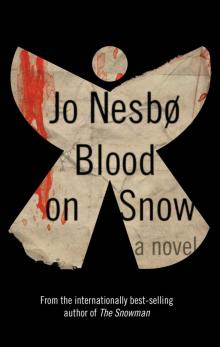 Blood on Snow: A novel
Blood on Snow: A novel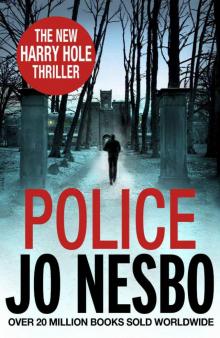 Police: A Harry Hole thriller (Oslo Sequence 8)
Police: A Harry Hole thriller (Oslo Sequence 8)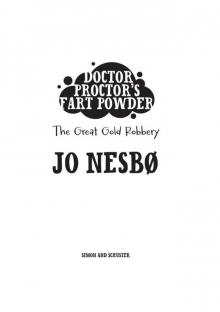 Doctor Proctor's Fart Powder: The Great Gold Robbery
Doctor Proctor's Fart Powder: The Great Gold Robbery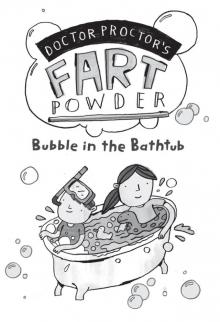 Bubble in the Bathtub
Bubble in the Bathtub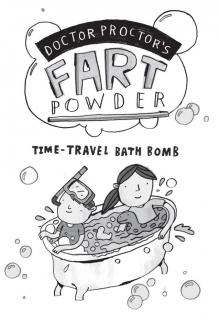 Doctor Proctor's Fart Powder: Time-Travel Bath Bomb
Doctor Proctor's Fart Powder: Time-Travel Bath Bomb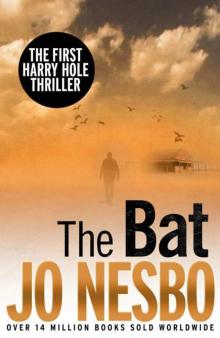 The Bat
The Bat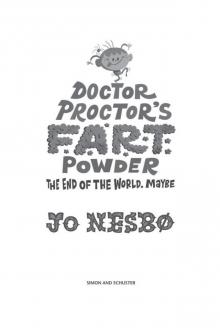 Doctor Proctor's Fart Powder: The End of the World. Maybe.
Doctor Proctor's Fart Powder: The End of the World. Maybe.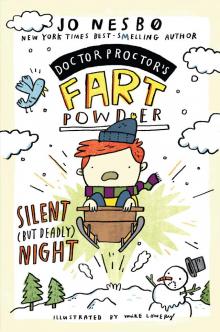 Silent (but Deadly) Night
Silent (but Deadly) Night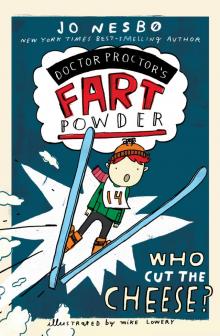 Who Cut the Cheese?
Who Cut the Cheese? Headhunters
Headhunters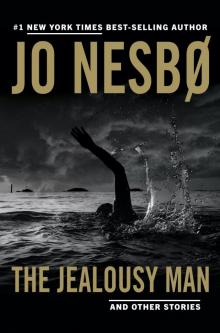 The Jealousy Man and Other Stories
The Jealousy Man and Other Stories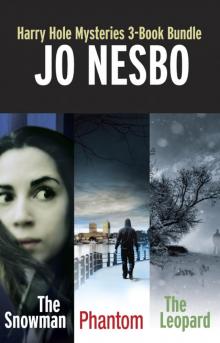 Harry Hole Mysteries 3-Book Bundle
Harry Hole Mysteries 3-Book Bundle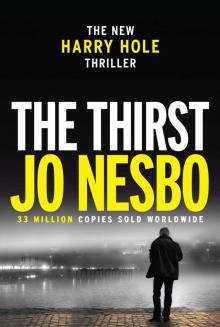 The Thirst
The Thirst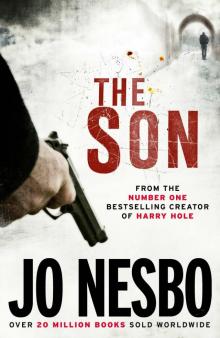 The Son
The Son The Redeemer
The Redeemer The Kingdom
The Kingdom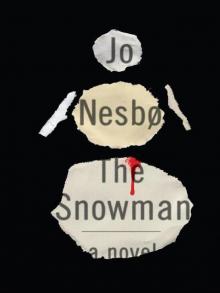 The Snowman
The Snowman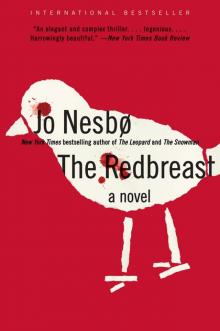 The Redbreast
The Redbreast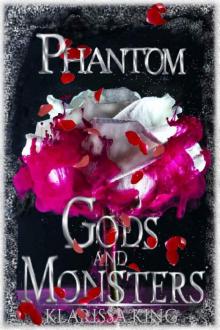 Phantom
Phantom Macbeth
Macbeth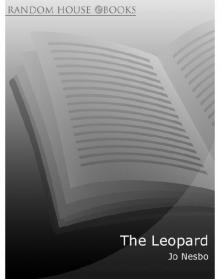 The Leopard
The Leopard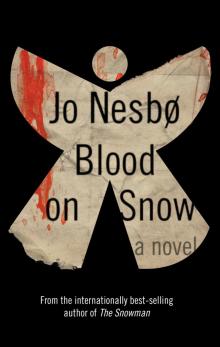 Blood on Snow
Blood on Snow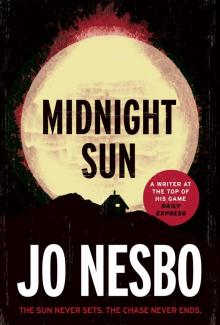 Midnight Sun
Midnight Sun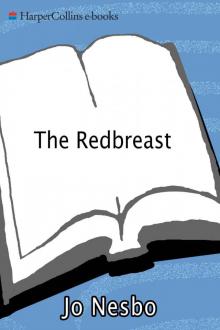 The Redbreast (Harry Hole)
The Redbreast (Harry Hole)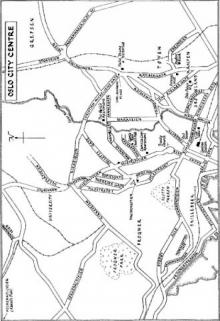 The Devil's Star
The Devil's Star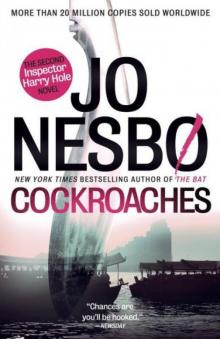 Cockroaches
Cockroaches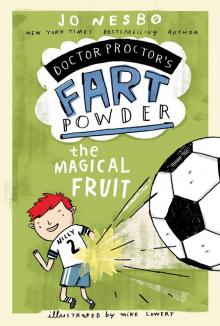 The Magical Fruit
The Magical Fruit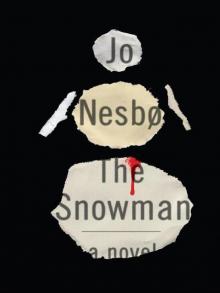 The Snowman: A Harry Hole Novel
The Snowman: A Harry Hole Novel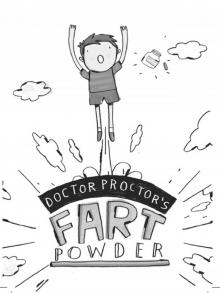 Doctor Proctor's Fart Powder
Doctor Proctor's Fart Powder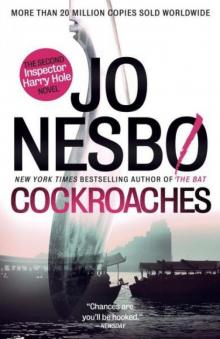 The Cockroaches
The Cockroaches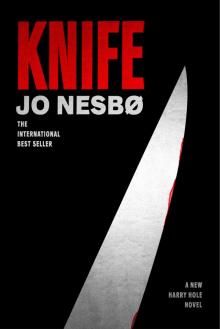 Knife
Knife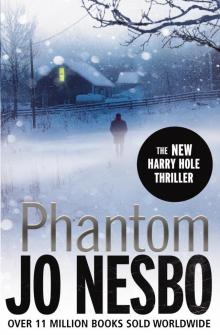 Phantom hh-9
Phantom hh-9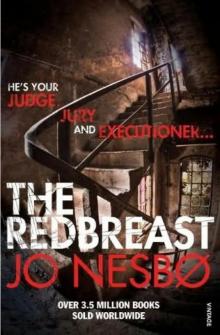 The Redbreast hh-3
The Redbreast hh-3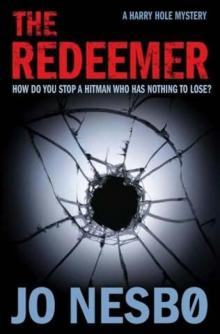 The Redeemer hh-6
The Redeemer hh-6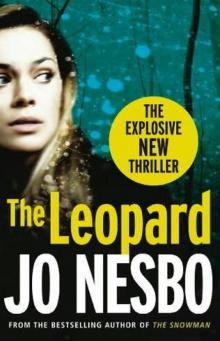 The Leopard hh-8
The Leopard hh-8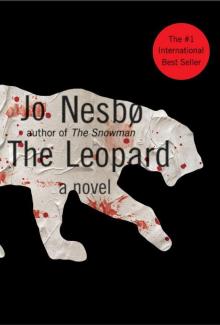 The Leopard: An Inspector Harry Hole Novel
The Leopard: An Inspector Harry Hole Novel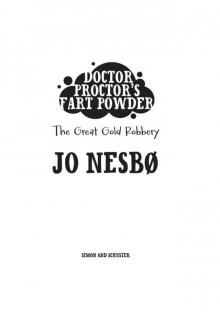 The Great Gold Robbery
The Great Gold Robbery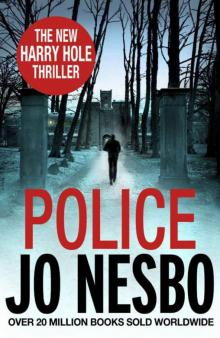 Police hh-10
Police hh-10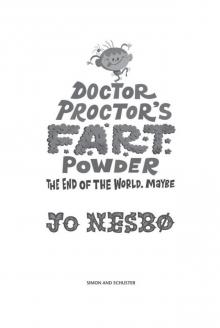 The End of the World. Maybe
The End of the World. Maybe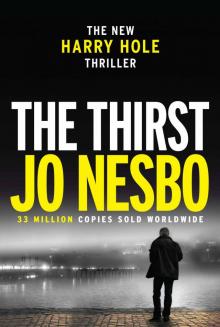 The Thirst: Harry Hole 11
The Thirst: Harry Hole 11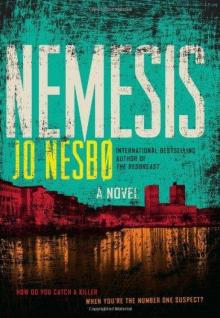 Nemesis - Harry Hole 02
Nemesis - Harry Hole 02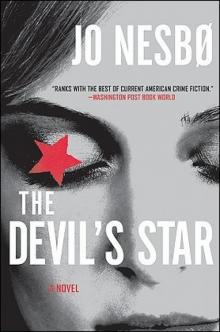 The Devil's star hh-5
The Devil's star hh-5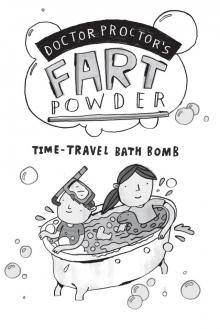 Time-Travel Bath Bomb
Time-Travel Bath Bomb